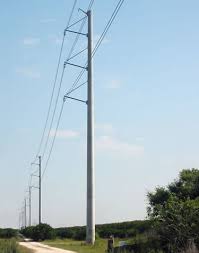On Wednesday, the Tallahassee City Commission voted 4-0 to approve a Memorandum of Understanding (MOU) with Gulf Power for the North Florida Resiliency Connection project. Once negotiations are complete, the co-location agreement will be presented to the City Commission for final approval.
According to Gulf Power, the proposed North Florida Resiliency Connection will enhance the reliability and resiliency of electric service in good weather and bad for customers.

The transmission line project will cover approximately176 miles across seven counties and create 200 jobs during construction.
The controversial project originally called for the transmission lines to run along Tram Road in eastern Leon County. However, homeowners objected and county and city commissioners also voiced concerns over the plan.
A new proposal calls for a revised route that will be south of Tram Road. However, this does not mean that the Tram Road route is off the table.
Select details are:
- A revised route that is south of Tram Road;
- The City of Tallahassee must approve any route within Leon County;
- Replacement of approximately 150 City utility poles to withstand wind speeds of 130 mph;
- A transmission grid interconnection (at the City’s option) with voltage transformation from 161 kV to 230 kV;
- Construction that preserves future circuit expandability for the City; and,
- Adequate facility and line spacing for operational, maintenance and repair safety for both utilities.
The City staff reports that the co-location of transmission facilities will result in the least environmental impact and clearing of trees. The upgrades to City facilities are estimated to be worth approximately $30 million.


To change the subject a bit………. Hydrogen, do we still have School Buses and City Buses that still run on Hydrogen? I rarely see any vehicles fueling up at the County Hydrogen Station on Cap Circle and was just wondering if that too was another boondoggle paid for by Tax Dollars.
Why can’t you use a lot of the existing concrete poles to save space and money?
I’d like to know why this line cannot be run underground?
Just dig a ditch, and run the lines inside a buried pipe.
Cat5 Hurricane?
No problem.
Would it be way more expensive than these huge concrete poles that have to be sunk deep into the ground?
It definitely would be way less unsightly.
> Just dig a ditch, and run the lines inside a buried pipe.
This is why people hire engineers to do things like build electrical grids, stormwater retention ponds, and water treatment systems.
What if there are a bunch of other things already buried in the ground there that you have to not destroy? What if big chunks of the land that you want to ‘just dig a ditch in’ are privately owned?
> Would it be way more expensive than these huge concrete poles that have to be sunk deep into the ground?
For someone who likes to talk about being a news hound, the most rudimentary search would have given you this answer. You think everywhere has overhead lines because planners loved the aesthetics?
https://www.elp.com/articles/powergrid_international/print/volume-18/issue-2/features/underground-vs-overhead-power-line-installation-cost-comparison-.html
> According to the May 2011 paper “Underground Electric Transmission Lines” published by the Public Service Commission of Wisconsin, “The estimated cost for constructing underground transmission lines ranges from 4 to 14 times more expensive than overhead lines of the same voltage and same distance. A typical new 69 kV overhead single-circuit transmission line costs approximately $285,000 per mile as opposed to $1.5 million per mile for a new 69 kV underground line (without the terminals). A new 138 kV overhead line costs approximately $390,000 per mile as opposed to $2 million per mile for underground (without the terminals).”
No doubt, if the commission suggested raising the millage rate to 4.1001, the TR posting elite would be the first to have an aneurysm about it.
Thank you, DSP. You seem to be very knowledgeable. I don’t believe our socialized utilities here at the COT are under the governance of the PSC so they can do anything they want with respect to rates. That’s one of the advantages of socialism. If they want to raise rates, then so be it. If it takes three weeks to restore power, then so be it. Too bad. What are you going to do? Call your elected official? LOL
You are welcome!
> You seem to be very knowledgeable.
It’s more like I thought about it for more than three seconds before bleating about socialism or whatever. You should try it sometime!
> I don’t believe our socialized utilities here at the COT are under the governance of the PSC so they can do anything they want with respect to rates.
Technically a true statement, with regard to the PSC in any case, but what the hell does utilities have to do with socialism again? For crying out loud, the entire article is about working with Gulf Power (a private company) for resiliency purposes. If the cabal of leadership were interested in doing ‘whatever they want with rates’, why would they bother with improved resiliency projects at all?
Why not raise rates 100% or 250% and build a solar panel in everyone’s back yard through eminent domain? (Probably still would be cheaper than running those lines underground though!)
> If they want to raise rates, then so be it.
You could always vote for City Commissioners who would promise to never raise rates, no matter what. Why not move to Jefferson county? It’s quite the utopia, I am told. Jesus, the victim mentality around this place. I’m being tormented by socialists and there is nothing I can do about it!
> If it takes three weeks to restore power, then so be it.
Wait? What?